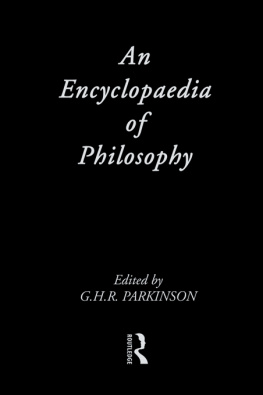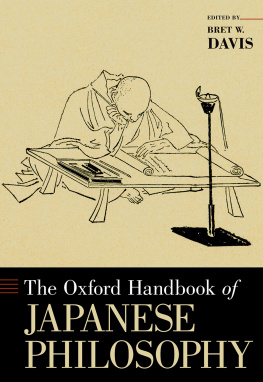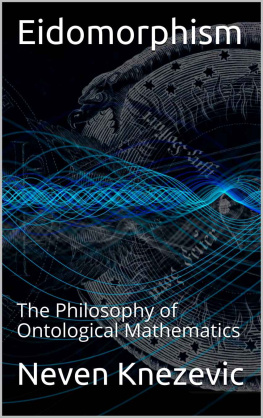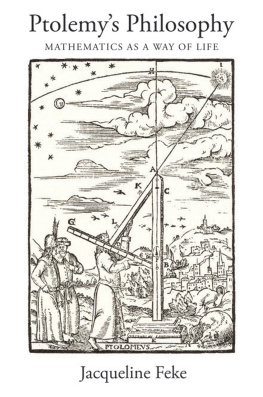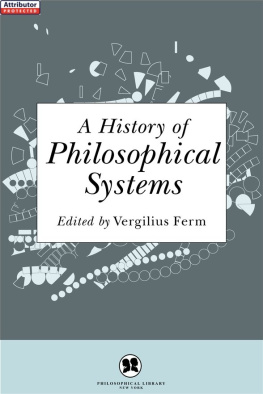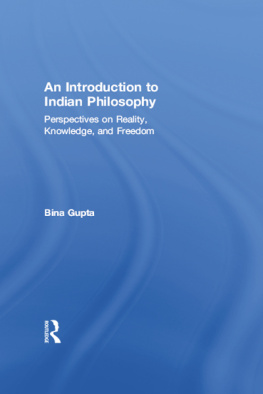
An Encyclopaedia of Philosophy
An Encyclopaedia of Philosophy
GENERAL EDITOR
G.H.R.Parkinson
ASSOCIATE EDITORS
T.E.Burke
J.G.Cottingham
M.A.Proudfoot
J.E.Tiles
ROUTLEDGE
First published in 1988
This edition published in the Taylor & Francis e-Library, 2008.
To purchase your own copy of this or any of Taylor & Francis or Routledges collection of thousands of eBooks please go to www.eBookstore.tandf.co.uk.
1988 Routledge
All rights reserved. No part of this book may be reprinted or reproduced or utilized in any form or by any electronic, mechanical, or other means, now known or hereafter invented, including photocopying and recording, or in any information storage or retrieval system, without permission in writing from the publishers.
British Library Cataloguing in Publication Data
An Encyclopaedia of philosophy.
1. Philosophy
I. Parkinson, G.H.R. II. Burke, T.E.
100 B72
ISBN 0-203-01320-4 Master e-book ISBN
ISBN 0-203-19111-0 (Adobe eReader Format)
ISBN 0-415-00323-7 (Print Edition)
Contents
Preface
This encyclopaedia of philosophy is intended for a very wide audience. It is intended for the general reader, who wants to know what philosophy is; for the sixth-former, who may have experienced for the first time the fascination of the problems of philosophy and who may be thinking about studying the subject at a university; and for university students of philosophy who want a general map of the various regions of philosophy that picks out the important features and relates them to each other. Finally, although this encyclopaedia is not a reference work for the specialist, it is hoped that it may be of some use to teachers of philosophy, who may find it helpful from time to time to see how their own special area of interest is related to other areas.
An encyclopaedia, by its nature, should aim at being comprehensive; but comprehensiveness has to be weighed against two other factorssize (which also means expense) and intelligibility. A one-volume encyclopaedia, such as this is, could achieve a fair measure of comprehensiveness, but the material that it contained would have to be compressed. Such an encyclopaedia would be useful only to someone who already has some knowledge of the subject, or who wants to pick up bits of informationthe exact title of a book, perhaps, or a date. The present encyclopaedia, however, is meant to give its readers some understanding of philosophy, and this means that limits have had to be placed on its scope. It has been decided that it should be an encyclopaedia of contemporary philosophical thought, an account of the current state of philosophical thinking. This does not mean that the history of the subject will be neglected. It is my belief that current philosophical problems have their roots in the past, and can best be understood by tracing them back to those roots. But there will be no discussion of issues that belong wholly to the past.
There is another restriction on the scope of this encyclopaedia. One of the most striking features of recent Western philosophical thought is the existence within it of two broad traditions, which are commonly called the continental and the Anglo-Saxon traditions. The continental tradition is by no means confined to the continent of Europe, but has many adherents in America; it descends from a method of inquiry known as phenomenology, expounded in the first instance by Brentano and Husserl, and developed by (among others) Heidegger and Merleau-Ponty. More recently, some continental philosophers have found inspiration in structuralist methods of inquiry drawn from linguistics; others have moved on from structuralism, though in what direction is not wholly clear. The Anglo-Saxon tradition goes back to the British empiricists of the seventeenth and eighteenth centuriesto Locke, Berkeley and Humebut it is not restricted to philosophers of the English-speaking world; it has also taken root in continental Europe, particularly in West Germany and in the Scandinavian countries. Now, there is nothing new in the coexistence of different philosophical traditions; what is new and disturbing is the fact that, in the main, the attitude of these two traditions towards one another is one of mutual incomprehension. Attempts have been made, and are being made, to end this state of affairs, but it cannot be said that they have had much success. Most of the contributors to this book are firmly within the Anglo-Saxon tradition, and it seemed to me that an attempt to deal adequately with the continental tradition would add considerably to the length and difficulty of the encyclopaedia. I have therefore decided, with regret, to omit those parts of the continental tradition that have made little or no impact on the Anglo-Saxon tradition. For similar reasons, no attempt will be made to give an account of oriental philosophy.
I have spoken of the aims and the limits of the encyclopaedia, and of its intended audience. It is now time to say something about the method of presentation, which is unusual for an encyclopaedia. An encyclopaedia is by its nature systematic; the question is, which method of systematisation suits the subject best? The method usually favoured by encyclopaedists is an alphabetical arrangement of a large number of articles of varying length. Some connection is established between these by means of cross-references. There are also usually a number of long articles of some generality, which provide a survey of important topics and point to more specific topics discussed elsewhere in the encyclopaedia. This is a long-established method of procedure, and when an encyclopaedia covers a wide range of disparate topics it is perhaps the best. The method adopted here, however, is different. As already mentioned, the aim of the book is to provide as it were a map of a whole region of thoughta map which will also provide some understanding of what it depicts. For this reason, the book is divided into just 37 chapters. Each of these covers one major area of philosophy, and taken together the chapters make up a survey of recent philosophical thought, within the limits that have just been explained. This is not to say that an alphabetical method of arrangement cannot also provide a survey; however, the connections between the various branches of philosophy are more clearly exhibited if one arranges the subject-matter by topic.
Although the chapters form a connected whole, the links between them are not strong. Each chapter is meant to be self-contained, so nothing prevents readers from turning first to those topics which they find most interesting. But I hope that readers, having picked out some chapters, will be led to read others, until a fairly complete picture of philosophy emerges. Each chapter of the book is followed by a select bibliography, which is meant to help readers to carry their studies further. Since a bare list of titles it not very helpful, the bibliographies also contain some elucidatory comments. Two other helps have been provided, one of which is a glossary of commonly used philosophical terms. The other is a chronological table of philosophy from 1600 to 1960. This encyclopaedia is not a history of philosophy, but, as I have said, it often refers to that history, and the chronological table is meant to relate the major philosophers and their most important works to each other and to the culture of their epoch.
Each chapter of the encyclopaedia is a survey, and a survey is of necessity made from some point of view. Although this encyclopaedia is in the main located within one tradition of philosophy, there are within that tradition many schools of thought, and no attempt has been made to select authors who belong to one and the same school. As general editor, my sole concern was to choose contributors who know their subject and can communicate their knowledge. Some initial planning was necessary to ensure that as far as possible all relevant topics were covered, and contributors were provided with a set of guidelines that had been drawn up by the general editor with the advice of his associates. But the relative weight to be given to the topics listed, and indeed their order and connection, were left to each author.
Next page
